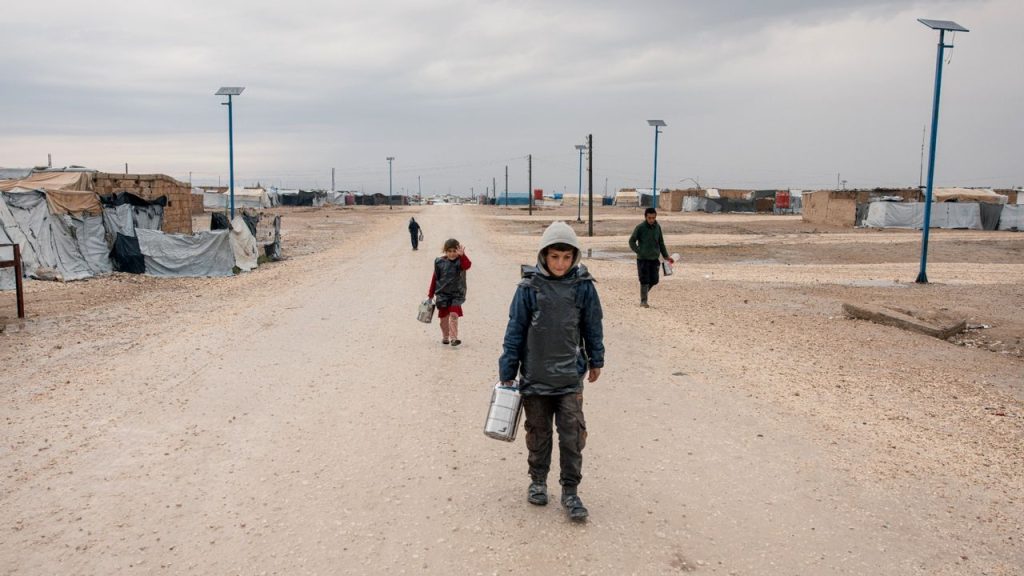Iraq is pushing for the dismantling of a notorious detention camp just over its border in northeastern Syria, where thousands of people – many with links to ISIS – are struggling in brutal conditions.
Originally set up for Iraqi refugees fleeing war, the al-Hol camp is now a “reliquary of the defeat of Islamic State”, said New Lines magazine. Family members of ISIS fighters are contained here, and Baghdad views it as a threat to national security.
Authorities are facing an “uphill struggle” to secure camps and prisons in this region of Syria, said the BBC, and Donald Trump’s aid cuts have made matters worse because the camp management teams rely “heavily” on non-governmental organisations to provide funding for food and guards.
‘Too dangerous for guards to enter’
The al-Hol camp is ostensibly run by the Kurdish authorities that control northeastern Syria but both Baghdad and Washington believe that much of the site is actually run by Islamic State, and used for indoctrination and recruitment.
Some 39,000 people, mainly from Syria and Iraq, live in the camp “in UN-style refugee tents”, said Richard Ashmore at the Daily Express, who visited al-Hol this month. It’s so large that it has its own bazaar and clinic, including a maternity unit.
There’s a separated “high-security wing”, reserved for the families of foreign-born ISIS fighters from over 42 countries, which is “deemed too dangerous for guards to enter”. The body of a woman who “fell out of favour was found buried in a shallow grave under rocks earlier this year”. Since 2019, over 150 killings have been documented at the camp, an average of more than two per month.
Afraid to return home
Repatriation efforts have been made but the hold of ISIS ideology in the camp means many of its inhabitants are afraid to leave to return home. Even when, in January, Kurdish authorities offered to allow all of the camp’s 16,000 Syrian nationals to return home, some chose to stay.
In the foreign-born section, there are people from countries as widespread as Trinidad, Russia, central Asia and Britain. Some of these nations have a “strong record” on bringing their citizens home but others, including European nations, have “stifled repatriation efforts”, said Al Jazeera.
Iraq has had the “most aggressive repatriation strategy” with hundreds of Iraqis repatriated in “more than a dozen campaigns”. And, since the suspension of aid to the camp, Baghdad has “stepped up repatriations”.
The Kurdish authorities have “done their best to keep the camp functioning” but the “sheer number of detainees” means it’s “constantly overcrowded and lacking services”.
Aid cuts mean authorities face ‘uphill struggle’ to maintain security
